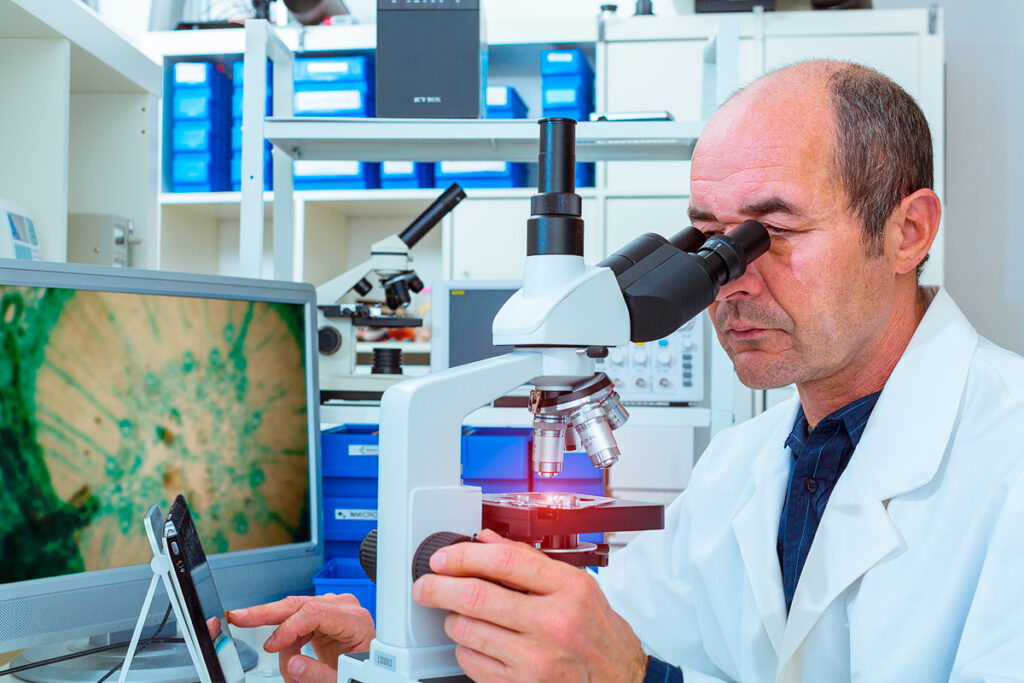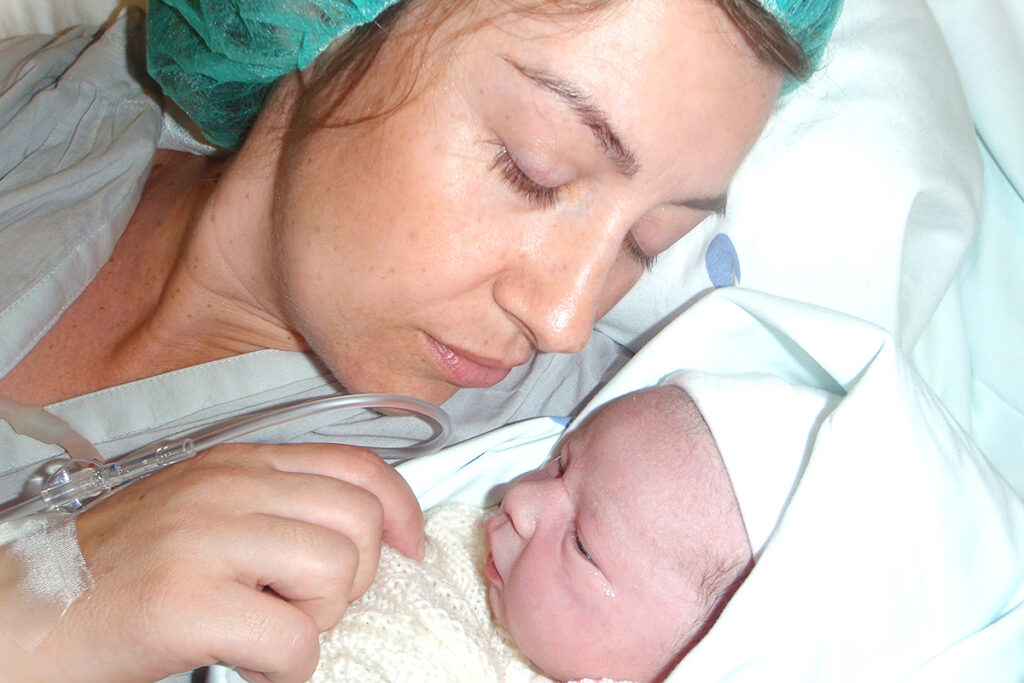Scientists at the University of Massachusetts Medical School (USA) have discovered types of oral and intestinal bacteria that can be used to predict mortality among hospitalized patients with COVID-19 accurately.
An estimated 20% of people infected with the SARS-CoV-2 coronavirus need to be hospitalized, and some patients require intensive care. It is still unknown why some people become terminally ill, and others do not. Hospitals around the world are facing an occasional increase in the number of patients with COVID-19. Therefore, it is necessary to find biomarkers that can accurately predict which patients have a high risk of developing severe disease and death. In the event of a health resource shortage, accurate risk assessments will help allocate adequate patient management resources.
The hallmark of severe COVID-19 disease is an uncontrolled inflammatory response – a cytokine storm. This uncontrolled inflammatory response, not the virus, causes severe lung damage and multiple organ failure, leading to death.
In September 2020, the International Severe Acute Respiratory and Emerging Infections Consortium (ISARIC) and the World Health Organization (WHO) developed a death risk assessment tool for hospitalized patients with SARS-CoV-2. The mortality estimate included eight variables:
- age;
- floor;
- number of comorbidities;
- respiratory rate;
- the level of oxygen in the blood:
- level of consciousness;
- the level of urea;
- the level of C-reactive protein.
However, the accuracy of this system is only 79%. That is, out of 10 patients with COVID-19, it will not be possible to identify 3 patients with a high risk of death.
Fatal risk assessment by the severity of symptoms of COVID-19
The Massachusetts researchers added 60 more to the eight ISARIC-WHO clinical variables and analyzed which of the variables and the severity of symptoms could predict the fatal outcome of COVID-19. The analysis used data from 63 patients with COVID-19, with moderate or severe symptoms and known disease outcomes. In patients who required more than 4 liters of oxygen, the signs were considered severe, less than 4 liters – moderate.
The researchers found that a combination of clinical variables, including the severity of symptoms, could predict a patient’s death from COVID-19 with 89% accuracy. When excluding the severity of symptoms, the accuracy was reduced to 84%. Thus, the accuracy of predicting COVID-19 outcomes is improved if, in addition to the usual clinical variables, the severity of respiratory symptoms, namely, the need for more than 4 liters of oxygen, is taken into account.
The severity of the disease is accurately determined by the stool and the oral microbiome
Compared to healthy people, patients with SARS-CoV-2 infection have intestinal microbiome dysbiosis: the number of opportunistic microorganisms in the intestine increases, and useful ones are depleted.
Intestinal dysbiosis causes chronic inflammation, which is crucial in developing chronic diseases such as type 2 diabetes and hyperlipidemia. These diseases are risk factors for severe COVID-19.
The researchers compared the accuracy of the prognosis of severe COVID-19 by:
- only clinical variables;
- the composition of the gut microbiome;
- the composition of the oral microbiome;
- combined clinical variables and gut microbiome composition;
- combined clinical variables and the composition of the microbiome of the oral cavity.
The clinical variables included age and body mass index as additional independent variables to control their effects.
Results in predicting accuracy of the severe disease development:
- Only clinical variables – 75.55%. Significant predictors of COVID-19 severity: hypercholesterolemia, Hispanic race, coronary heart disease, asthma, obesity, acute respiratory distress syndrome, rapid shallow breathing (tachypnea), number of days in the hospital, thrombosis, and male gender.
- Intestinal microbiome (stool analysis) – 92.05%.
- The microbiome of the oral cavity – 83,79%.
- Combined clinical variables and data on the gut or oral microbiome – 96.36%.
Types of intestinal and oral microorganisms increasing the risk of developing severe COVID-19
Scientists have found three main types of bacteria, the number of which is most likely to predict severe COVID-19.
Bacteria of the intestinal microbiome:
- Bacteroides uniformis (Bacteroides / Bacteroidia);
- Enterococcus faecalis ( Firmicutes / Bacilli);
- Monoglobus pectinilyticus (Firmicutes / Clostridia).
Bacteria of the microbiome of the oral cavity:
- Porphyromonas endodontalis (Bacteroides / Bacteroidia);
- Veillonella tobetsuensis (Firmicutes / Negavicutes);
- Bifidobacterium breve (Actinobacteria / Actinobacteria).
In patients with moderate coronavirus, there is a decrease in the number of gastrointestinal bacteria Enterococcus faecalis and oral bacteria Porphyromonas endodontalis. In patients with severe disease, the number of these bacteria increases. These bacteria are the main factors determining the severity of COVID-19.
In contrast, an increase in the number of Bacteroides fragilis, Bacteroides caccae, and Clostridium clostridioforme in the intestine or other species of Bacteriodetes-Muribaculum gastinale – in the oral cavity is characteristic of patients with moderate disease.
Outcome dependence of COVID-19 on the level of antibodies to SARS-CoV-2
In patients with severe and mild or moderate COVID-19, the antibody dynamics are different.
The researchers collected one blood sample from each patient (approximately 6.42 ± 6.47 days after admission to the hospital). They examined the relationship between the patient’s microbiota and whether plasma levels of antibodies against the receptor-binding domain (RBD) of the SARS-CoV-2 spike protein, namely, immunoglobulins of the IgA, IgM, and IgG classes changed depending on the severity of the disease during blood collection or among patients who eventually died of the disease, compared to those who survived. No differences in antibody levels were found depending on the severity of the disease. However, patients who eventually died had significantly lower levels of IgG to RBD. High levels of IgG antibodies to RBD correlate with antibodies that block the virus from entering the cell.
The study found no bacteria that predicted levels of IgA, IgM, or IgG antibodies. Perhaps these are independent indicators of the outcome of the disease.
Conclusions
The severity of COVID-19 disease can be predicted from stool or oral microbiome composition with higher accuracy than traditional clinical assessment methods using only a combination of concomitant disease data and clinical biomarkers.
The two types of bacteria in the oral (Porphyromonas endodontalis) or intestinal (Enterococcus faecalis) microbiome can serve as indicators for reliably predicting severe development COVID-19. Enterococcus faecalis can be obtained from feces, so analysis for these bacteria is economical, fast, and relatively easy to implement in a clinical setting.
Researchers at the University of Massachusetts School of Medicine called on the medical community to analyze indicator species of the microbiome, particularly Enterococcus faecalis, in addition to the observed clinical variables. Together, these clinical data will help accurately predict the development of severe COVID-19 and quickly identify patients who will need more intensive treatment to improve their chances of survival.



